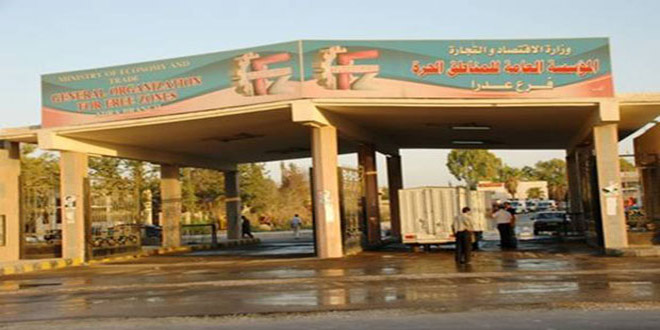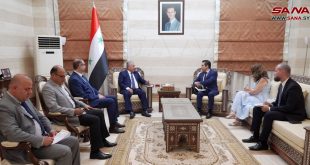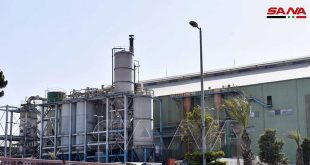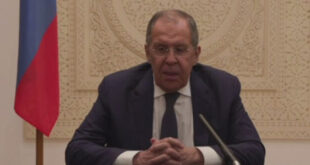Damascus, SANA – The revenues of the free trade zones up till September 2015 reached SYP 1.450 billion, with a trade movement of SYP 62 billion and customs fees of SYP 7 billion.
The figures were announced by Director-General of the Free-Trade Zones Establishment Mohammad Katkout, who compared them to the SYP 1.210 billion revenues generated in the same period of 2014 where the customs fees were SYP 5 billion.
He put the invested capital of foreign companies at the free-trade zones in Syria till the end of June 2015 at SYP 96 billion, while the number of investors reached 1150.
After the zones have been hard hit by the bad repercussions of the war waged against Syria since 2011, compounded by the unjust economic siege and sanctions imposed on the country, the government has been exerting relentless efforts to support and develop the free-trade zones to enable them to resume their activity.
In total there are 9 free zones in Syria, the largest of which is in Daraa and has been allocated for car trade on the level of the Middle East.
Three free-trade zones are based in the Syrian coastal area,-two in Lattakia and one in Tartous- while a fourth zone exists in Aleppo, a very important zone particularly for the industrial supplies as it is located near the Industrial City in al-Sheikh Najjar area.
There is also a free trade zone in Damascus and another one based at Damascus International Airport. In the northeastern region, a free zone was established in al-Yarubiyeh in Hasaka in 2008. This was a very active zone given its location near the Iraqi borders and at a line between Iraq, Turkey, the Gulf states and Eastern Asia.
A very important free-trade zone was established in 2010 Hassia in Homs province in central Syria.
The free zones in the coastal area and in Damascus are still operating and have recently witnessed progress in terms of investments, according to the Director General Katkout.
He however told SANA that the investment activity at the free-trade zone of Damascus International Airport has declined.
He noted that the Establishment is now working on promoting investments at the free zones by holding promotion campaigns through the media and conferences with the aim of enhancing their economic activity.
To that end, Katkout said, a number of agreements have been signed with some friendly countries aimed at attracting investors and improving the investment situation at the free-trade zones and supporting the national economy with the needed foreign currency.
He referred to the desire on the part of some Iranian investors to start investments at the free-trade zones in Syria, especially in the industrial field, noting that a possibility is being studied to include the free-trade zones in the free trade agreement signed with Iran.
Katkout cited a number of several facilitations which the Free-Trade Zones Establishment has provided to investors, including paying duties by installments and in the SYP or the USD according to the prices set by the Central Bank of Syria, in addition to the Establishment’s current efforts to exempt investors affected by the crisis from the investment allowances and late payment fines.
The Establishment has just completed preparing the draft law for the free-trade zones that is now under study by the authorities concerned to be later issued, Katkout announced.
He said the draft law focuses on the advantages of industrial investment activities at the free-trade zones and on ways of attracting new investments, adding that the draft law also encourages the establishment of private free-trade zones.
The Director General also revealed that the Establishment seeks to establish new free-trade zones in Sweida and Damascus Countryside.
R.J/H. Said
 Syrian Arab News Agency S A N A
Syrian Arab News Agency S A N A




